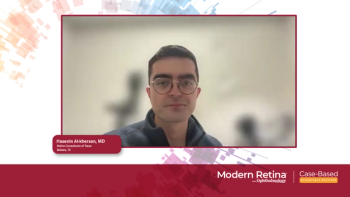
Case-Based Roundtable Series

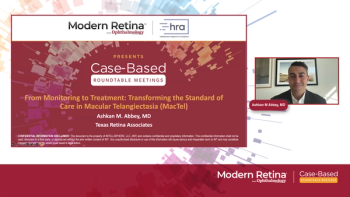
A panelist discusses how advances in imaging, patient-centered decision-making, and the introduction of NT-501 therapy are redefining the diagnosis and treatment of macular telangiectasia type 2—emphasizing early intervention, personalized care, and practical implementation strategies to optimize visual outcomes.
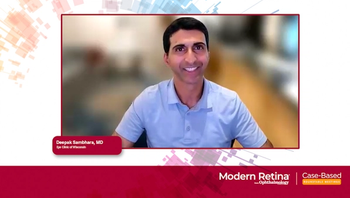
Experts share real-world strategies for managing geographic atrophy, emphasizing early intervention, individualized imaging-guided treatment, and patient education to slow disease progression and preserve vision.
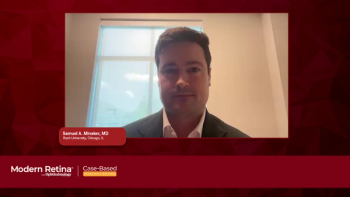
A panelist discusses how retina specialists manage geographic atrophy and neovascular age-related macular degeneration by combining clinical trial data, real-world evidence, and patient-centered approaches—including treatment personalization, emerging therapies, disease monitoring, and transparent communication—to optimize outcomes, support adherence, and preserve vision.
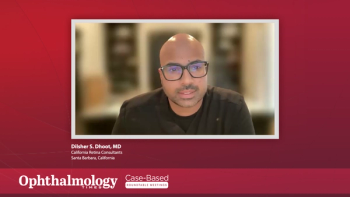
Dilsher S. Dhoot, MD, discusses how second-generation anti-VEGF therapies like aflibercept 8 mg and faricimab demonstrate superior efficacy and durability in treating neovascular age-related macular degeneration (nAMD) and diabetic macular edema (DME) cases, allowing treatment intervals to extend by 2 to 3 weeks, improving anatomical outcomes, and reducing patient treatment burden compared with first-generation agents.
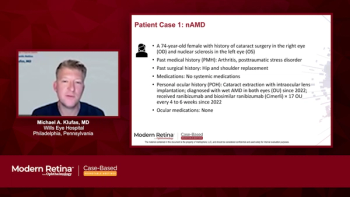
Michael A. Klufas, MD, discusses how second-generation retinal vascular agents like high-dose aflibercept 8 mg and faricimab show promising results for treating neovascular AMD and diabetic macular edema, with particular emphasis on extended treatment intervals up to 20 to 24 weeks and strategies for managing persistent exudation while maintaining vision.
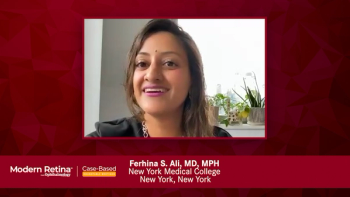
Ferhina S. Ali, MD, MPH, discusses how emerging treatments and tailored management strategies can improve the care of patients with geographic atrophy in age-related macular degeneration, emphasizing the importance of patient education and individualized treatment plans.
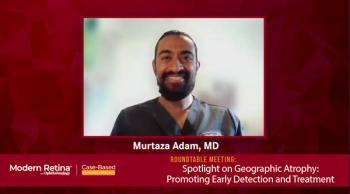
Murtaza Adam, MD, reviews the complement-based treatments for geographic atrophy (GA), discusses factors to consider before starting treatment, and shares insights from real-world cases in his practice to guide effective management strategies.
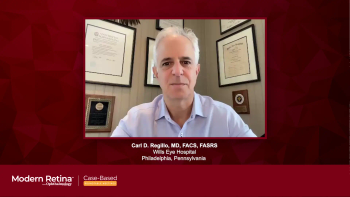
Dr. Carl D. Regillo, MD, FACS, FASRS provides a comprehensive overview of geographic atrophy, covering its diagnosis, current complement-based treatments, and insights from real-world cases in his practice to guide effective management strategies.
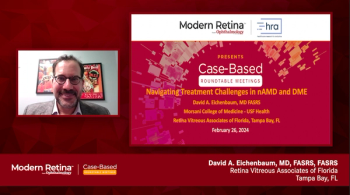
David Eichenbaum, MD, FASRS shares successful clinical experiences treating retinal diseases with second generation agents aflibercept 8 mg and faricimab, emphasizing improvements in visual acuity, anatomical features, and quality of life for patients.
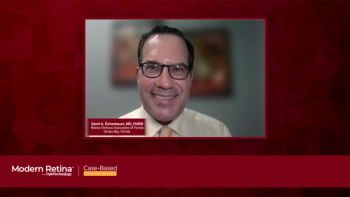
Dr David A. Eichenbaum shares treatment approaches and clinical advice for the management of AMD/DME.
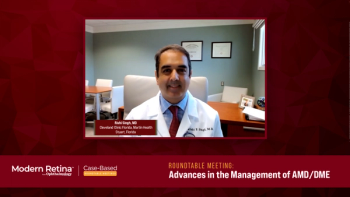
Dr Rishi Singh shares treatment approaches and clinical advice for the management of AMD/DME.
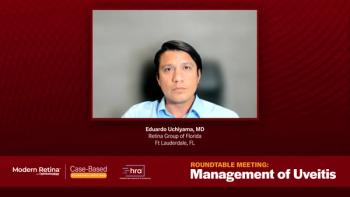
Dr. Eduardo Uchiyama, shares treatment approaches and clinical advice for the management of uveitis.
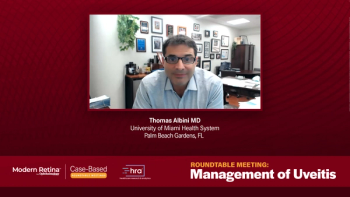
Thomas Albini, MD, shares treatment pearls and clinical insights regarding the management of uveitis.
